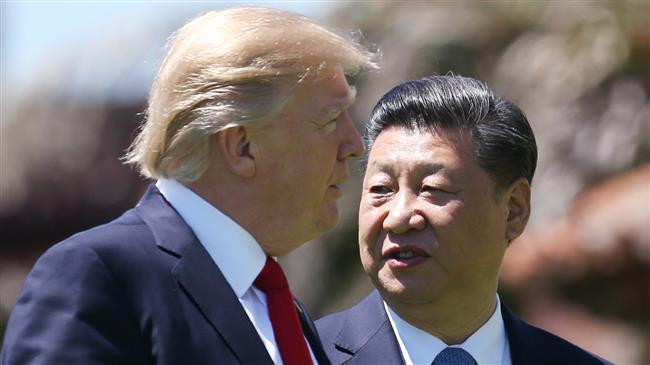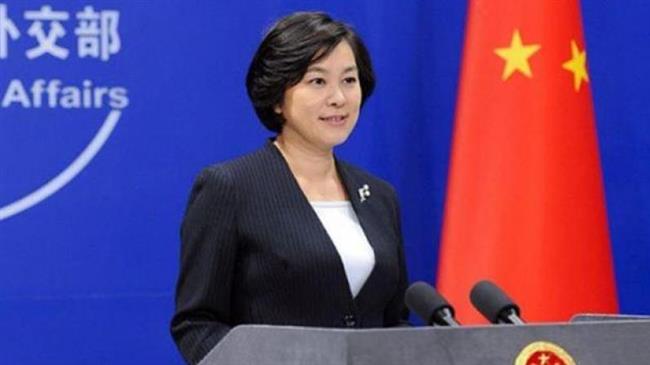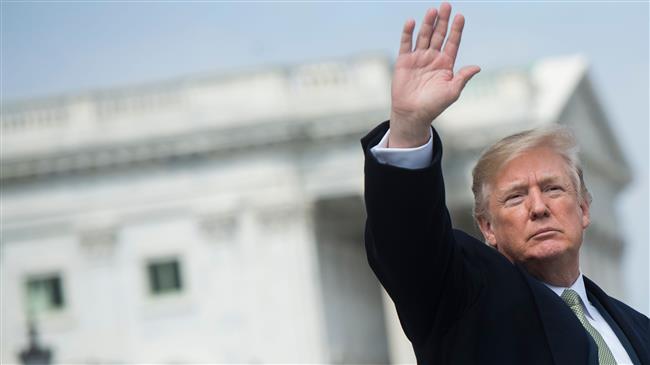China pledges retaliation as Trump prepares to announce new tariffs
In a new warning to Washington, Beijing pledges tit-for-tat measures should the US choose to slap trade sanctions against China over what it calls “the theft” of American intellectual property.
Beijing “will not sit idly by and let its legitimate rights and interests be harmed,” the Chinese Commerce Ministry said on Thursday as US President Donald Trump is widely expected to unveil new tariffs on Chinese imports worth as much as up to $60 billion.
It said China “will certainly take all necessary measures to resolutely defend its legitimate rights and interests.”
White House spokesman Raj Shah said Trump will on Thursday announce actions following an “investigation into China’s state-led, market-distorting efforts to force, pressure, and steal US technologies and intellectual property.”
According to his schedule, Trump will sign “a Presidential Memorandum targeting China’s economic aggression,” fueling concerns of a trade war between the two sides.
The Thursday warning came just hours after the Commerce Ministry accused the United States of “repeatedly abusing” trade practices.
The World Trade Organization had earlier ruled that Washington has not fully complied with a 2014 ruling against its anti-subsidy tariffs on various Chinese products.
Beijing’s Commerce Ministry said the ruling “proves that the US side has violated WTO rules, repeatedly abused trade remedy measures, which has seriously damaged the fair and just nature of the international trade environment, and weakened the stability of the multilateral trading system.”
Chinese Premier Li Keqiang has urged Trump to not act “emotionally.”
The US president, however, has so far shown no sign of backing down.
The top US trade official, Robert Lighthizer, said on Wednesday that retaliation from China, notably targeting US agricultural exports, would be inevitable.
United States Trade Representative (USTR) consulted multiple departments and executive branch divisions, including Commerce, Treasury, Agriculture, State, Defense, the National Security Council and the National Economic Council, to assess how China might respond.
It is not the first time the US cracks down on trade practices the president deems unfair.
Just two weeks ago, Trump announced tariffs on imports of steel and aluminum. He signed paperwork enacting tariffs of 25 percent on steel and 10 percent on aluminum during a ceremony at the White House.
His decision initially rattled financial markets, caused legal disputes and threats of retaliatory measures.
Many warned that the move would cause a deep global recession as well as a trade war.
China has repeatedly said that it does not seek a trade war but warned that it would take “firm and necessary” countermeasures if necessary.
Dec. 22: ‘Axis of Resistance’ operations against Israeli occupation
‘Abhorrent’: Oxfam says only 12 trucks delivered aid in North Gaza since Oct.
VIDEO | Leader receives religious eulogists on Hazrat Fatima birth anniv.
Pope Francis slams Israel’s ‘machine-gunning’ of Gaza children
US hostage-taking of Iranian nationals violation of intl. law: Deputy FM
VIDEO | Carol Singers for Palestine on London’s Parliament Square
Ansarullah says ‘Israeli terrorists’ incapable of confronting Yemen, warns of secret weapons
VIDEO | Yemenis praise the military for its successful operations against Israel













 This makes it easy to access the Press TV website
This makes it easy to access the Press TV website